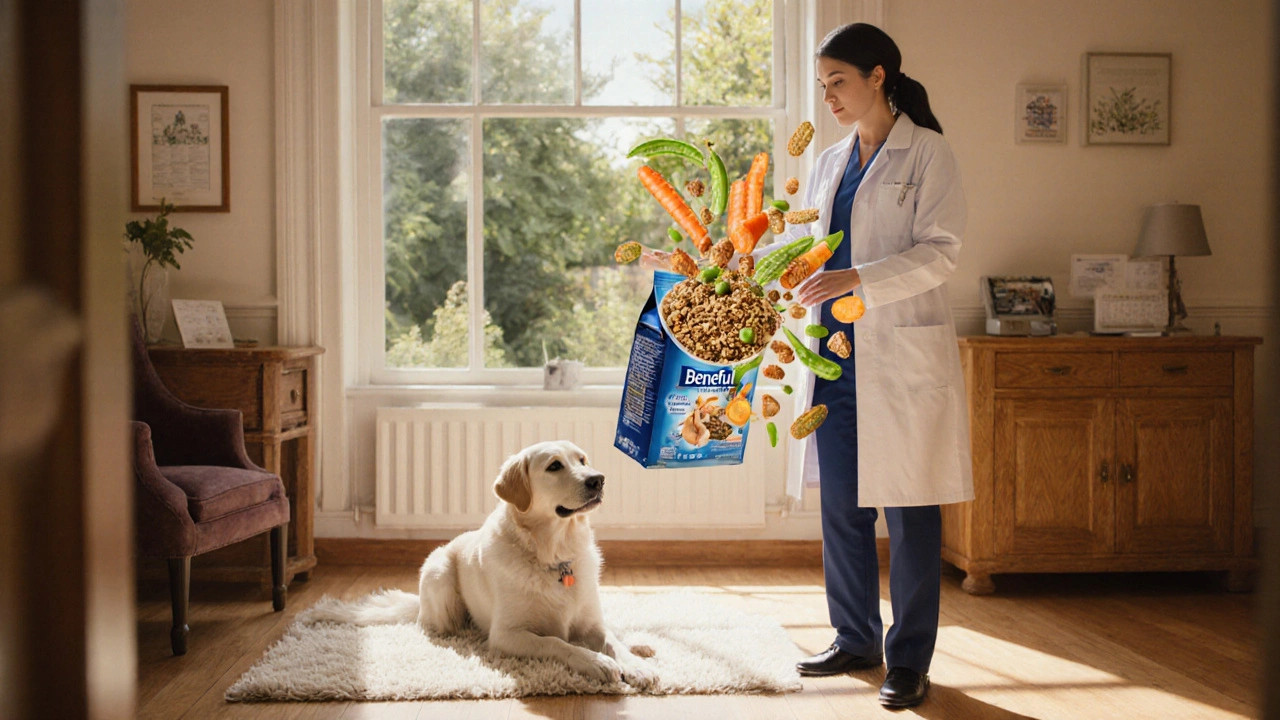Veterinarian Advice on Beneful: What Dog Owners Need to Know
You've probably seen the bright blue bags of Beneful at the supermarket and wondered if they're a good choice for your dog. Vets get asked about this brand every day, and the answers are a mix of facts and common sense. Below we break down the key points you should consider before you fill your bowl.
Is Beneful Good for Your Dog?
Beneful is marketed as a complete and balanced diet, which means it meets the minimum nutrient levels set by the UK’s FEDIAF standards. In practice, that translates to a mix of meat meals, grains, and added vitamins. The good news is the formula does contain protein from animal sources, which is essential for muscle growth.
However, the protein often comes from meat by‑products rather than whole meat chunks. Vets prefer whole meat because it’s easier for dogs to digest and provides higher quality amino acids. The grain component—usually corn or wheat—can be a problem for pups with sensitivities. If your dog has a history of food allergies, you’ll want to look for a grain‑free alternative.
Another point is the level of fat. Beneful’s fat content is on the higher side, which can be great for active working dogs but may lead to weight gain in couch‑potato companions. Keep an eye on your dog's body condition score and adjust portions accordingly.
How Vets Recommend Feeding Beneful
First, follow the feeding guide on the package, but treat it as a starting point, not a rule. Every dog is different—size, age, activity level, and health status all affect caloric needs. A 20‑kg adult dog in moderate activity might need about 300 g per day, while a senior with joint issues could do fine on 200 g.
Second, transition gradually. Mix a small amount of Beneful with your dog’s current food, then increase the Beneful portion over 7‑10 days. This reduces digestive upset and lets you spot any adverse reactions early.
Third, watch for signs of intolerance. Loose stools, itching, or ear infections can indicate an ingredient your dog doesn’t like. If you notice these symptoms, stop feeding Beneful and consult your vet for a tailored diet plan.
Finally, supplement wisely. Beneful already includes essential vitamins, so additional supplements are usually unnecessary unless prescribed for a specific health issue. Over‑supplementing can cause imbalances that harm your dog’s kidney or liver function.
Bottom line: Beneful can be a convenient, affordable option for many dogs, but it isn’t the universal solution. Use it with a vet’s guidance, monitor your pet’s response, and be ready to switch if you see any red flags. Your dog’s health is worth the extra effort, and a little knowledge goes a long way toward keeping them thriving.
What Vets Really Say About Beneful Dog Food
A veterinarian‑focused look at Beneful dog food: ingredient breakdown, AAFCO compliance, health impacts, life‑stage suitability, and practical feeding checklist.
